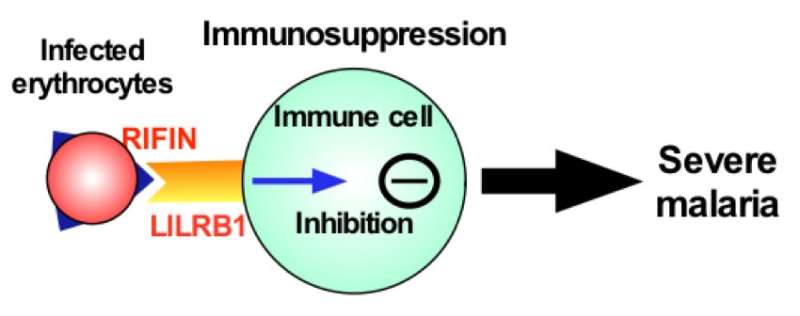Discovery of key molecules involved in severe malaria – new target for malaria vaccine

Malaria is one of three major infectious diseases affecting approximately 300 million people every year, accounting for about 500,000 deaths, but effective vaccine development has not been successful. Among malaria parasites infecting humans, Plasmodium falciparum (P. falciparum) causes especially severe disease. In addition, acquired immunity to malaria is inefficient, even after repeated exposures to P. falciparum, but the immune regulatory mechanisms used by P. falciparum remain largely unclear. Therefore, malaria parasites appear to have a mechanism to escape our immune system.
A research group led by Fumiji Saito, Kouyuki Hirayasu, Hisashi Arase at Osaka University found that proteins called RIFIN expressed on erythrocytes infected with P. falciparum help the parasite to suppress the host immune response, causing severemalaria(Fig. 1). These findings are expected to contribute to the development of effective vaccines and therapeutic drugs against malaria.
Malaria parasites infect mainly erythrocytes in the host and proliferate within infected erythrocytes. The team found that proteins called RIFIN expressed on P falciparum-infected erythrocytes bind to a host inhibitory receptor LILRB1. Furthermore, RIFIN suppresses the immune response to malaria, resulting in severe complications of malaria.
This research disclosed for the first time in the world that P. falciparum has a new mechanism to suppress the host immune response by using an inhibitory receptor, contributing to the pathogenesis of severe malaria. The results of this research are expected to greatly contribute to the development of therapeutic drug and vaccine against malaria.
Explore further












User comments